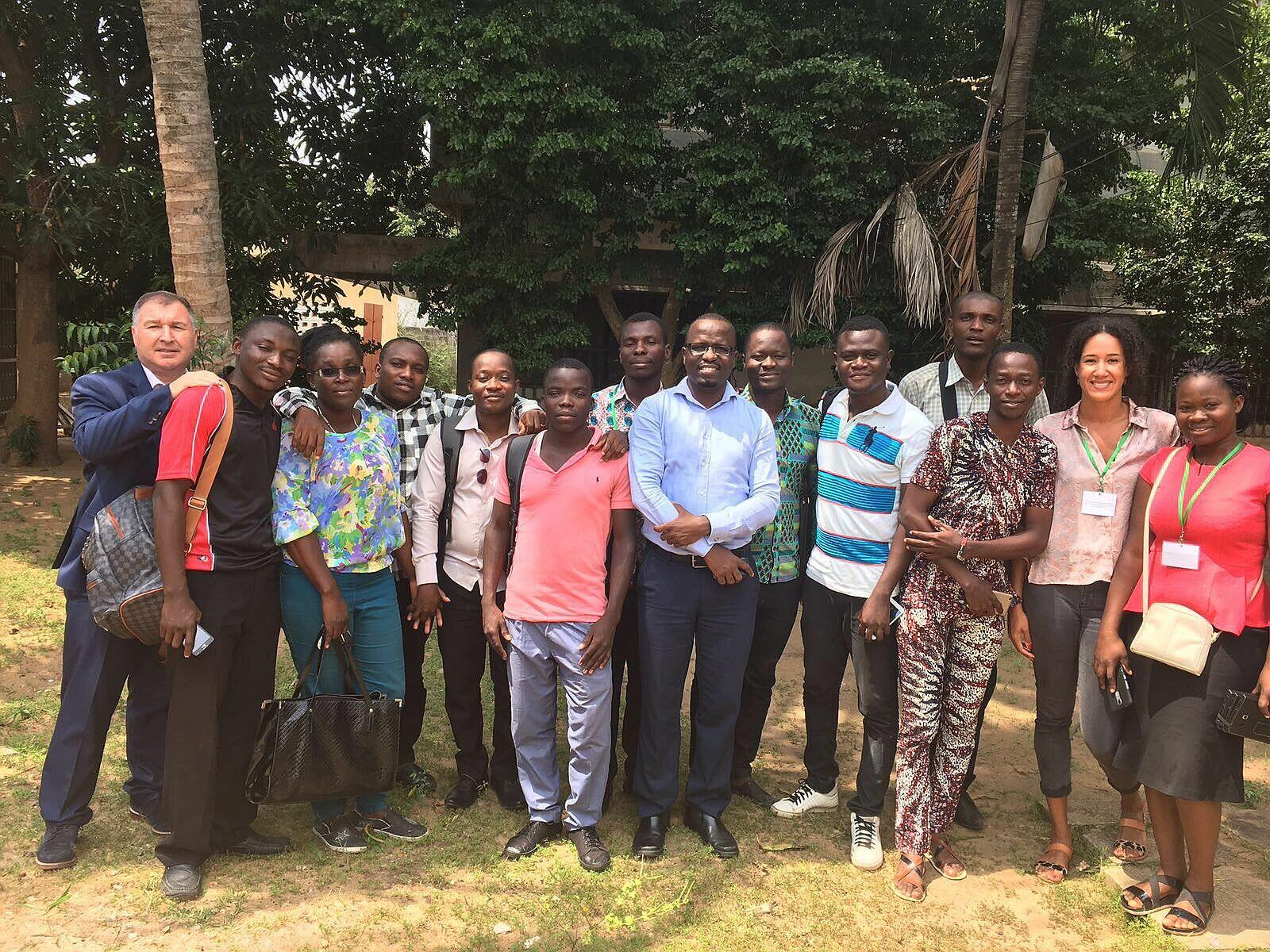
Togo is the first country in CMNH's Global Fund programme to have a completed baseline assessment, soon to be followed by Ghana, Afghanistan and Niger. Two members of staff from CMNH spent a week supervising data collection in the capital Lome, during which large-scale protests were held by anti-government groups.
Although mostly peaceful, reports of up to 100,000 people demonstrating in the streets led to roads being blocked off across the city and internet access shut down nationwide. This had a significant impact on the logistics and scheduling of data collection, as well as the communication between teams. The safety of the data collectors was, of course, paramount. However, in an unfamiliar country, unable to speak French, and with very little verified information, conducting a risk assessment was not without its challenges for the CMNH staff based in the capital.
Thankfully, in addition to the two supervisors from Liverpool, there were two Togolese supervisors who were familiar with the city, spoke French fluently, and who had experience of similar protests. These supervisors and the highly-experienced driver were instrumental to the data collection continuing through the demonstrations. By suggesting which facilities to attend in order to best avoid the demonstrations, providing regular updates on activity within the city, and advising the data collectors on routes away from the protests, disruption to the data collection was limited.
With the information at hand, practical steps were taken on the ground to reduce potential safety issues. The day started an hour early at 7am to ensure the data collectors were travelling during the quietest part of the day, and were more likely to finish their work before the protests gained momentum. To increase their safety whilst travelling, data collectors worked in teams of two or more. In the few instances where this was not possible, those travelling alone went to health facilities that were situated in areas of the city they were familiar with.
Prior to the demonstrations, WhatsApp had been the main form of communication between data collectors and supervisors, allowing messages to be broadcast quickly within the team. With no internet and unreliable SMS delivery, phone calls became the primary means of communication, and all key messages were reiterated during the morning meeting. In addition to this, the supervisors remained in the office during the day instead of travelling between facilities. This ensured that if there were problems in the field that could not be communicated by phone, data collectors knew where to locate the supervisors. The absence of internet had another impact on data collection, as teams outside of Lomé were unable to upload their completed data files to the cloud. Although this did not affect the timetable of data collection it did delay the process of data cleaning, which may have been problematic had there been a larger quantity of data.
The success of the Togo trip demonstrates CMNH’s ability to effectively collect data in unforeseen and disruptive environments. Without the hard work of the data collectors - who were enthusiastic and engaged from beginning to end - the process would have certainly been more difficult. Regular communication between Liverpool and Togo, along with effective management and planning, were also key to the high-quality of data that was collected ahead of schedule. The political landscapes of the Global Fund countries vary massively, and although data collection during political protest may not be a regular occurrence, the lessons learned from this initial visit should still be applied to future CMNH fieldtrips.
If you have advice or experience from working in similar situations then please let us know, as the more knowledge is shared, the better our quality of data will be.
About the author:
Cristianne Connor is a Research Assistant at the Centre for Maternal and Newborn Health, Liverpool School of Tropical Medicine. She received her MSc from the London School of Hygiene and Tropical Medicine and has a special interest in adolescent reproductive and sexual health.